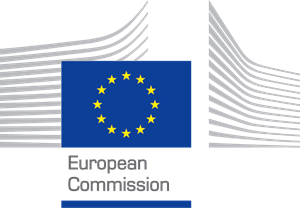Overcoming electrification challenges with numerical models.

CITADEL: Substitution of fossil combustion in industrial high-temperature processes by advanced electrical heating technologies.
Effectively combating global warming requires a significant reduction in CO2 emissions. This poses enormous challenges, especially for the energy-intensive process and production industry, as this industry accounts for one third of total energy consumption. What is needed is intelligent electrification across all operational processes. Electrification has such a large potential impact on decarbonisation because it allows clean, renewable electricity to power processes that previously used emissions-intensive technologies (such as gas burners). This means that a process that previously produced high emissions can become absolutely emission-free when powered by renewable energy.
The aim of the CITADEL project is to substitute fossil combustion processes with innovative electric technologies, such as electric resistance heating, microwave heating and plasma heating. Five use cases are considered, targeting the production of refractory bricks, glass and copper wires, preheating processes in steel production and the recycling of concrete. For these specific applications, appropriate demonstration plants have to be designed, built, tested close to the process and validated. This is supported by corresponding activities to provide suitable high-temperature materials and tools for instrumentation and effective process control.
Challenges regarding a stable energy supply, electrical and thermal load management or intelligent energy management are simulated by means of numerical models. This includes corresponding risk assessments, e.g. with regard to possible time constraints in terms of a continuous power supply and the consequences of supply fluctuations for process safety. All demonstration cases are evaluated by a life cycle analysis and with regard to the effectiveness in the reduction of greenhouse gases. The impact of the technical solutions developed here for the process industry are assessed and strategies for scale-up and deployment are elaborated as well.
Our main tasks
- Requirement profiles for glass production.
- Modelling electric network stability.
- Modelling process control.
- Flexibility services analysis methodology for the process industries.
- Production schedule flexibilization capabilities.
- Storage capabilities.
- Coordination of data acquisition campaigns.
- Development of business plans for the proposed electrification technologies.
- Scale-up and deployment strategies.
Partners
ASTA ENERGY SOLUTIONS | C2CA TECHNOLOGY | ENTECH ENERGITEKNIK | FRICKE UND MALLAH | ICROWAVE TECHNOLOGY GMBH | HELMHOLTZ-ZENTRUM DRESDEN-ROSSENDORF | IDENER.AI | INSTITUT JOZEF STEFAN | INTOCAST IBERICA | KTH | POLITECNICO DI BARI | SIDENOR | STEKLARNA HRASTNIK | TU DELFStart date – finish date
01 / 2024 - 12 / 2027

This project has received funding from the European Union’s Horizon 2020 research and innovation programme under grant agreement Nº 101138794

